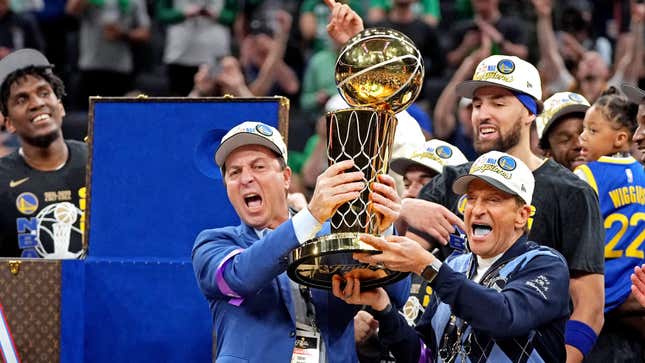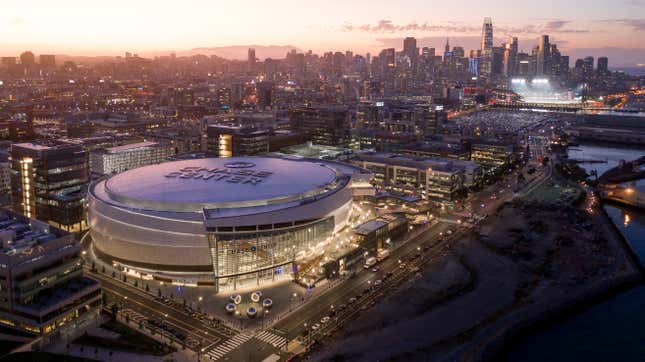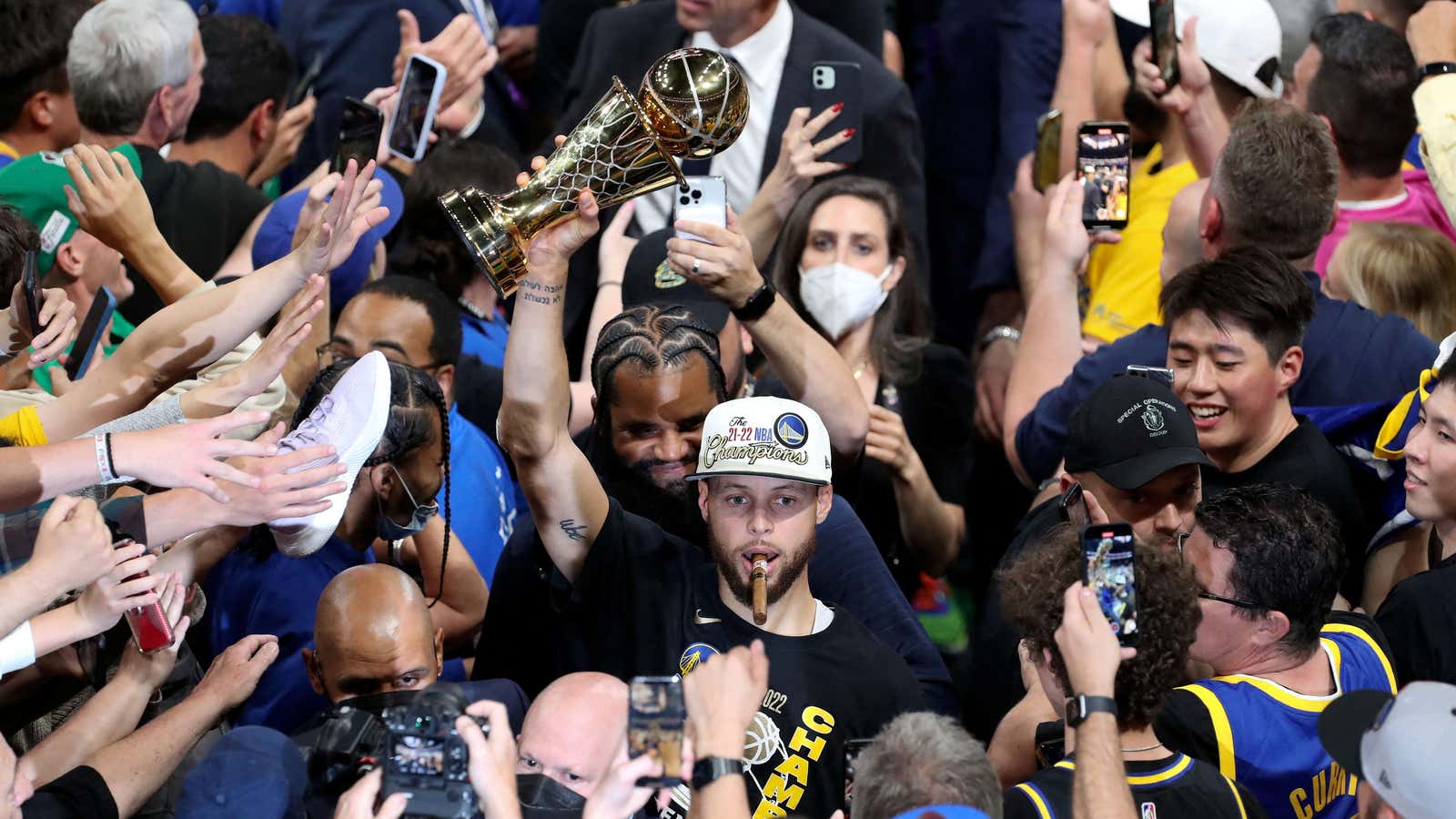San Francisco’s Golden State Warriors just captured its fourth championship in the last eight years, firmly establishing the team as a National Basketball Association (NBA) dynasty. But the path to this year’s win was possibly the unlikeliest in its history.
Just months prior the covid-19 pandemic, Warriors owners Joe Lacob, a Silicon Valley billionaire, and Hollywood power player Peter Guber formally opened the doors to the Chase Center, a new arena that reportedly cost $1.4 billion. The state-of-the-art facility is one of the NBA’s newest, and tops the cost of the tech-forward Barclays Center, which cost the Brooklyn Nets $1 billion to launch in New York City in 2012.

JPMorgan Chase reportedly paid $300 million for the 20-year naming rights to the facility. However, when the NBA announced that it was suspending live games starting in March of 2020 due to pandemic concerns, the Warriors’ large investment in its new arena seemed like it might have been a misstep. At the time, there was no timetable outlining when live games with fans in attendance might be possible again.
Additionally, the Warriors have in recent years maintained one of the highest payrolls in the league. For the 2021-22 season, the Warriors have the highest NBA payroll at $178 million, and Steph Curry, the team’s star (and finals Most Valuable Player), has the league’s highest salary at $45.7 million for his most recent season.
Overall, the team bet nearly $1.6 billion, counting the investment in the stadium and talent, on its franchise remaining relevant despite it not being located in one of the major media markets of New York or Los Angeles, and fielding a team mostly comprised of drafted and developed players rather than relying on the “super team” model exemplified by the LeBron James-era Miami Heat.
The Warriors are proving that sports franchises are still one of the best bets in entertainment
The Warriors’ ownership risk was even more stark when considering what else happened to the team just before the pandemic. One of its primary stars, Klay Thompson, went down with a major injury in 2019 that would eventually lead to another, sidelining him for close to two years. Also in 2019, superstar Kevin Durant left the team to join the Brooklyn Nets. The result—just as the Chase Center opened its doors—was a depleted team with a pricey new arena facing an extended period without games with live audiences.
The NBA attempted to mitigate covid-19 hurdles by creating a fan-free quarantine bubble for its delayed playoff season in 2020. Although the dynamic allowed NBA teams to continue to benefit from its billion-dollar broadcast TV deals with ESPN and Turner Sports, the bubble experiment in Florida proved that live fans drive a large part of the entertainment value of game.

As covid-19 vaccines were adopted, the NBA began to bring back games with fans late last year, but it was still unclear what the Warriors’ investment would look like within the new landscape. Throughout this season, the Milwaukee Bucks, the defending champions, and the surging Phoenix Suns were forecast as betting favorites to win the championship.
However, after the Warriors’ June 16 win over the Boston Celtics, the team and its investors, which includes tech billionaire and Facebook alum Chamath Palihapitiya, can now rest easy. The franchise’s massive cash outlay to privately finance its arena and decision to pay top dollar for its players has officially defeated the economic tumult of the last two-and-half years.
